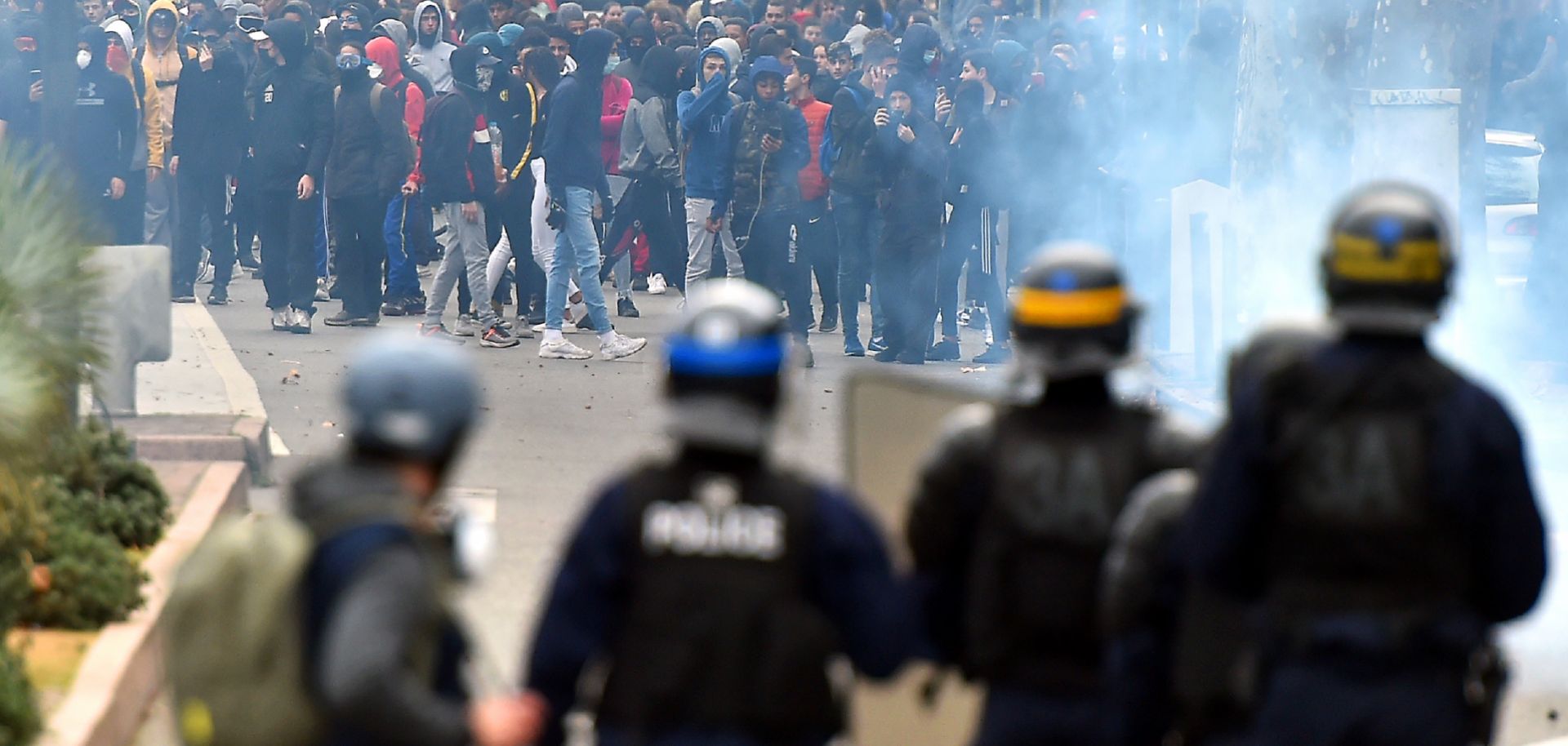ASSESSMENTS
The Long-Term Implications of France's 'Yellow Vest' Protests
Dec 10, 2018 | 15:40 GMT

Protesters face riot police on Dec. 7, 2018, in Toulouse, France. Since mid-November, a series of protests against France's high cost of living and President Emmanuel Macron's economic reforms have taken place throughout the country.
(REMY GABALDA/AFP/Getty Images)
Highlights
- The French government's comfortable majority in the National Assembly makes it possible for President Emmanuel Macron to implement his pro-business reforms agenda, but resistance from volatile grassroot movements, right- and left-wing political opponents and labor unions will constrain the government's room for action.
- A plan to reform the pensions system in 2019 will open the door to new street protests, while a plan to amend the French Constitution will give opposition parties the chance to weaken the government.
- Resistance from Northern European countries and institutional turnover in 2019 will make it hard for France to achieve its plans of deeper risk-sharing and greater money transfers within the European Union.
Subscribe Now
SubscribeAlready have an account?
